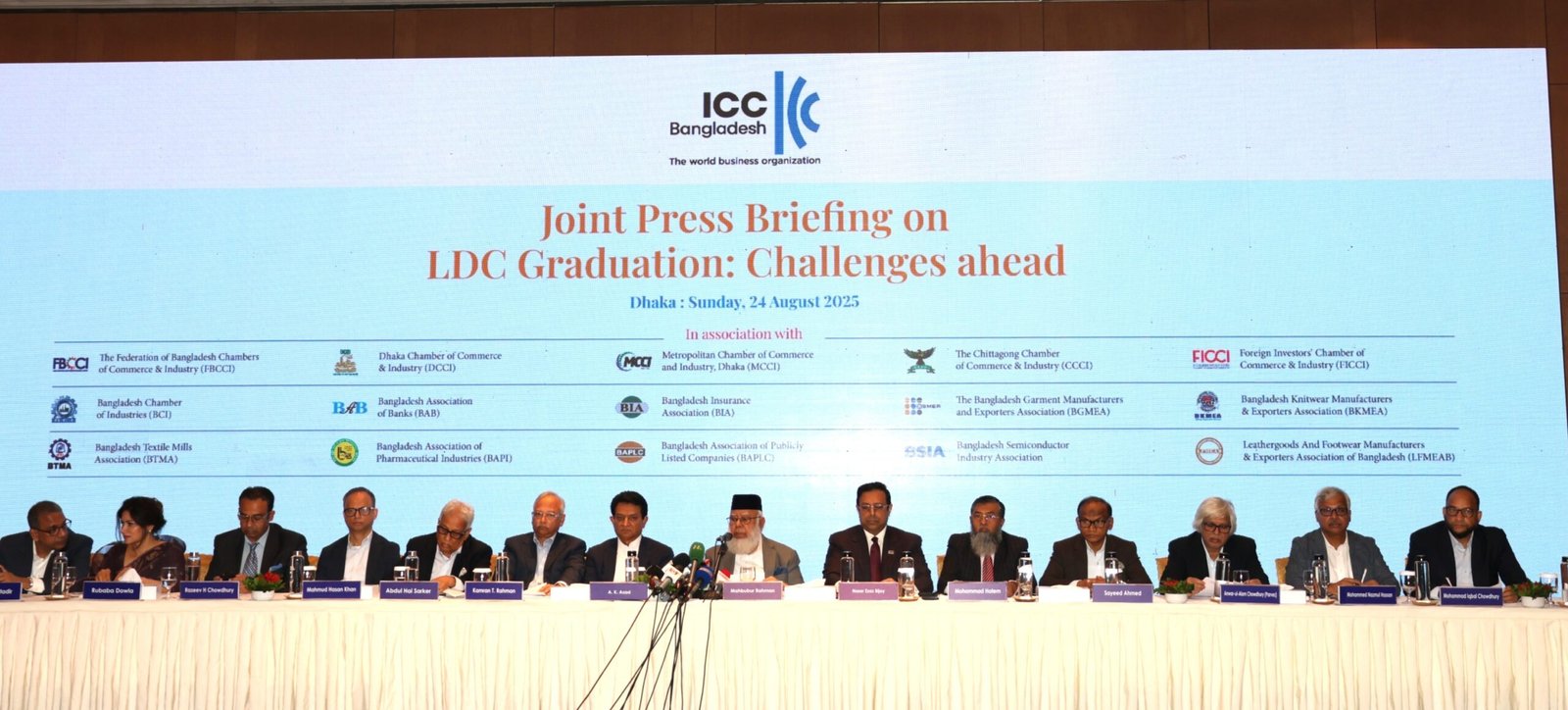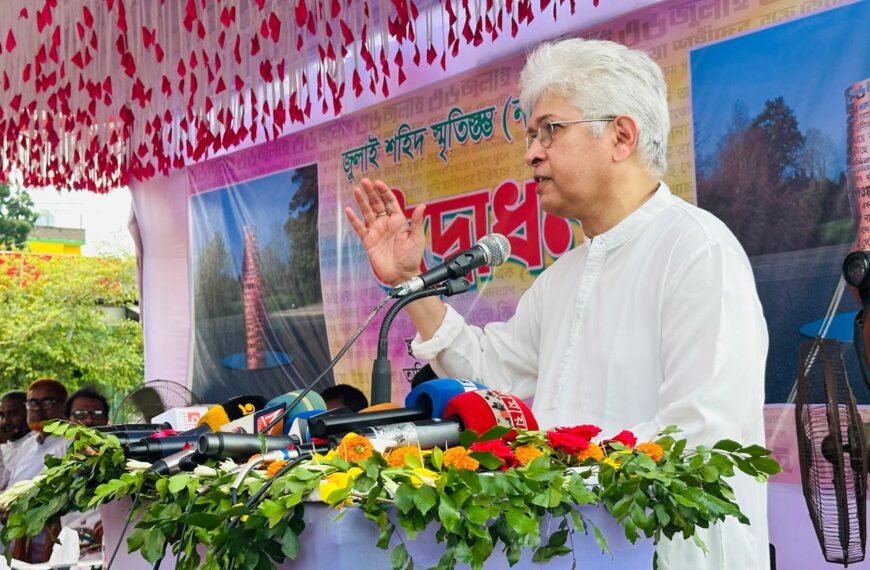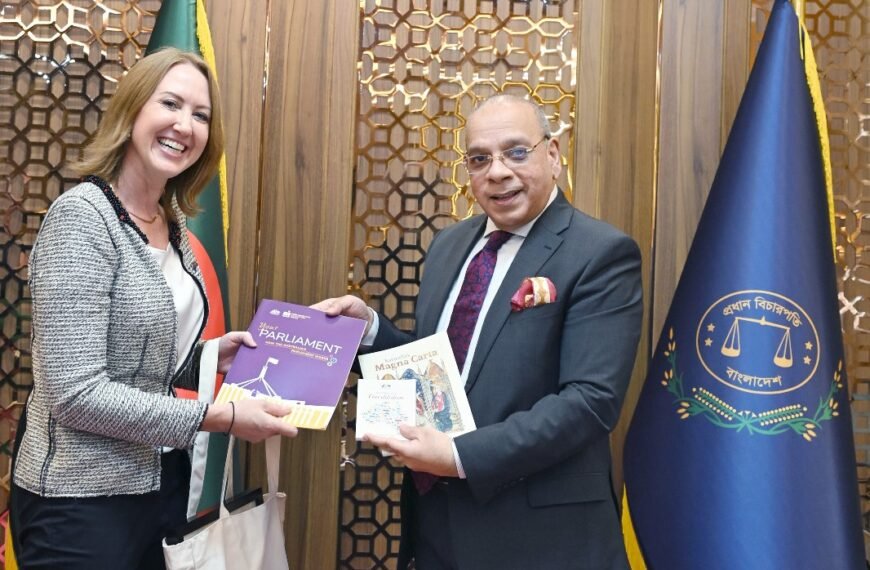Top business leaders of Bangladesh have demanded that the government extend the deadline for graduation from LDC (least developed country) to 2032, which was set in 2026. They also called for an additional three-year transition period for a sustainable and smooth transition.
The demand was made at a press conference titled “LDC Graduation: Challenges Ahead” at Hotel Intercontinental in the capital on Sunday (August 24, 2025). The event was jointly organized by the International Chamber of Commerce Bangladesh (ICCB) and national-level business organizations, including FBCCI.
ICCB President Mahbubur Rahman said that Bangladesh is scheduled to graduate from LDC in November 2026. While our entrepreneurs welcome the transition, they feel that they need at least until 2032 to prepare fully. Business leaders argue that with an additional 3 to 5 years of preparation, Bangladesh will be able to secure free trade agreements (FTAs) with the EU, UK, ASEAN and Gulf countries. In addition, it will be possible to diversify exports in the pharmaceutical, IT, leather, agro-processing and light engineering sectors, create skilled human resources for the Fourth Industrial Revolution (automation, artificial intelligence), attract advanced technology and quality foreign investment, and strengthen governance, climate resilience and global competitiveness.
In a written statement, business leaders warned that early graduation without preparation will create various risks. These include the loss of duty-free benefits, which could result in tariffs of up to 12 percent in the EU and UK, and exports could fall by 6-14 percent. At the same time, export subsidies and flexible intellectual property laws will no longer be in place. In particular, the pharmaceutical industry will have to comply with strict patent laws, which will increase production costs and drug prices. Apart from this, the ready-made garment (RMG) sector will be the most affected due to the strict rules of origin. In addition, concessional loans will be stopped, as a result of which Bangladesh will have to rely on high-interest market-based loans and will also lose the flexible loan facility of the World Bank’s IDA.
These impacts will be the most on the ready-made garment sector, which contributes more than 81 percent of exports as the backbone of the Bangladesh economy. Due to the loss of duty-free benefits and strict standards, production costs will increase, competitiveness will decrease. Therefore, business leaders emphasized on diversifying exports.
ICCB Vice President A.K. Azad, MCCI President Kamran T. Rahman, DCCI Senior Vice President Rajib H. Chowdhury, BGMEA President Mahmud Hasan Khan, BKMEA President Mohammad Hatem and BTMA President Shawkat Aziz were present at the event.




